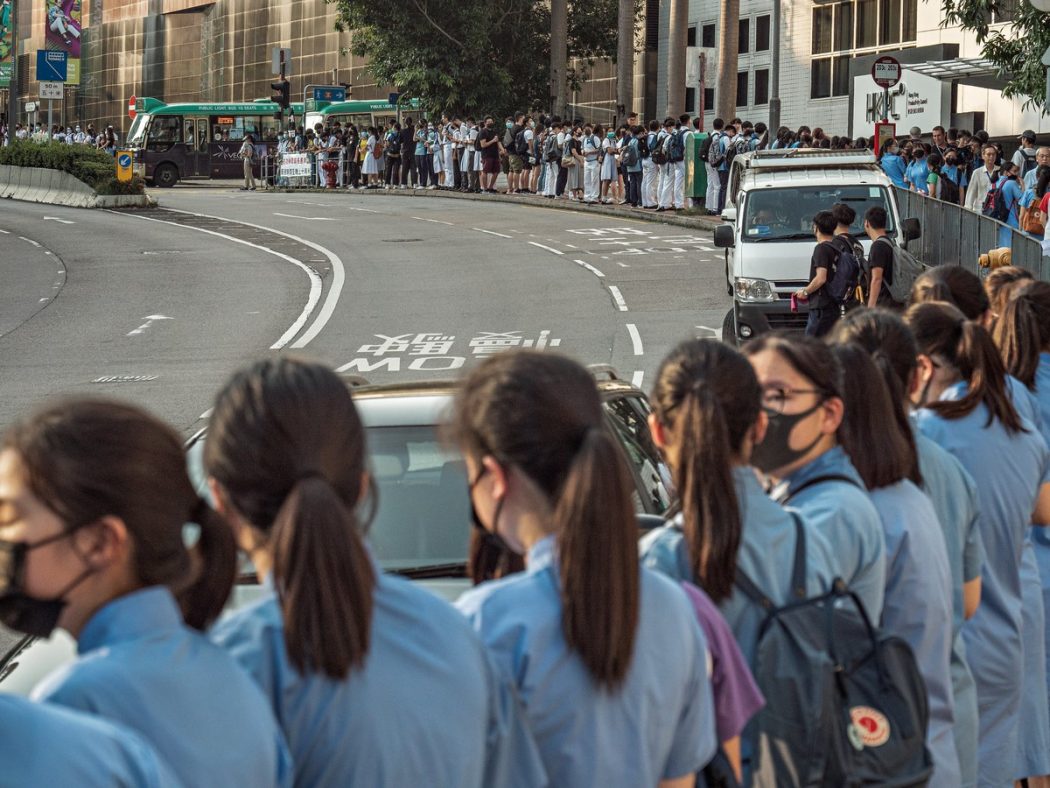Hong Kong Chief Executive Carrie Lam has said the city’s education has become “politicised” as “negative” coverage of China and “smearing” of the government by the media are reflected in schools.
Lam criticised the press at an education summit co-organised by the state-owned Wen Wei Po newspaper and the pro-Beijing Hong Kong Federation of Education Workers on Saturday. She said that, since the anti-extradition bill movement last June, it was “extremely worrying” that an anti-government mindset and a “rejection” of the country had become rooted in the minds of young Hongkongers.

University campuses have become a “hotbed” of violence, Lam claimed, following the chaotic skirmishes between police and protesters at the Chinese University of Hong Kong and the Hong Kong Polytechnic University in November last year. She said the movement has led to the formation of secondary student groups that called for class boycotts and advocated Hong Kong independence.
The city’s leader said the local education system has become “politicised” as anti-government forces “infiltrated” campuses. She also blamed media coverage for affecting the teaching, assessments and extra-curricular activities at schools.
“The media’s negative reporting on the country, the wrong formulation of history and the smearing of the government and law enforcement agencies are all reflected in the teaching materials, classroom teaching, exam questions and students’ extra-curricular activities,” she claimed.

Lam expressed concern that some students in Hong Kong have little awareness of abiding by the law and have become used to using different forms of protest to express opinions. She also pointed to promotional materials with “ulterior motives,” which rationalise violence and “demonise” any government crisis as acts of totalitarian rule.
“In other words, without solving the political issues, even better education policies and more education resources can hardly turn things around,” Lam said.
She added she hoped people would understand why the newly-enforced national security law has two articles directly related to schools. The controversial legislation that criminalises secession, subversion, terrorism and foreign interference gives the authorities power to “take necessary measures” to strengthen public communication, guidance, supervision and regulation over matters concerning national security related to schools.

Last week, Secretary for Education Kevin Yeung said no one should hold any activities to express their political stance in schools, while students were banned from singing, playing and broadcasting the protest song Glory to Hong Kong.
“I hope the national security law is a turning point to let education return to education, and let students’ learning go back on the right track,” Lam said.
Over the weekend, over 600,000 people voted in the pro-democracy camp’s primary elections – critics have interpreted the high turnout as a protest vote on the new national security law.
Support HKFP | Policies & Ethics | Error/typo? | Contact Us | Newsletter | Transparency & Annual Report | Apps
Help safeguard press freedom & keep HKFP free for all readers by supporting our team
























